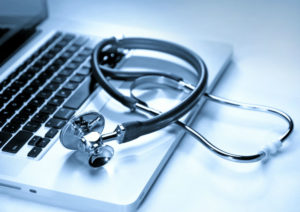Do you believe that you or someone you know is suffering from gynecomastia symptoms? Gynecomastia is the official medical term for the development of breasts, and when this affects men, the symptoms can be physically and emotionally difficult to deal with. While there are some natural causes of gynecomastia symptoms, it can also be caused by chemicals like those found in drugs.
Most Common Gynecomastia Symptoms
Gynecomastia symptoms are physical in nature since the condition refers to the swelling of breast tissue in men. This is the most commonly reported condition in men and young boys who develop gynecomastia, but it is not the only symptom.
Other symptoms that may affect someone who has gynecomastia include:
- Palpable breast tissue
- Swollen nipples
- Mood swings
- Chronic fatigue
- Nipple discharge
- Unsymmetrical breast enlargement
- Nausea
- Fever
- Gastrointestinal issues
Usually gynecomastia symptoms will show in both breasts, but there are rare circumstances when it may affect only one. Whether gynecomastia symptoms appear naturally or due to the use of a drug such as Risperdal, the emotional effects can be devastating for young men and adult males.
Occasionally, gynecomastia symptoms may present as cancerous tumors. When this happens, bloody discharge from the nipple or a hard lump in the area might be the first signs of a problem.
If you or someone you know has already experienced any of these signs and is concerned about the development of gynecomastia, you should speak to your doctor immediately.
 Treatment of Gynecomastia Symptoms
Treatment of Gynecomastia Symptoms
A man who has developed gynecomastia will confirm this with a doctor’s visit. From there, he may be asked to go through hormone replacement therapy to rebalance the hormones within the body. Intravenous testosterone may help to rebalance the patient’s hormones and dietary supplements can also help with the situation.
In the event that the doctor discovers cancer, the man may have to go through cancer treatment.. Radiation therapy and surgery are the most common treatments, both of which can come with serious side effects of their own. The good news is that when gynecomastia and cancer are found together early, the symptoms can most often be addressed quickly to allow the patient to recover in full.
Sadly, many recent academic and medical studies have found that gynecomastia may be linked to certain prescription drugs. All drugs carry some potential side effects and these should be listed within the marketing materials for the drug to allow doctors and patients to make an informed decision about using the drug.
When this information is not provided and patients develop gynecomastia symptoms or other severe side effects, the drug may ultimately be recalled or those patients may decide to file a lawsuit against the manufacturer. One such drug identified with connections to gynecomastia is Risperdal, a popular anti-psychotic.
Have you developed gynecomastia symptoms after taking Risperdal? If so, you need to talk to the attorneys at McDonald Worley about your next steps. The law firm is currently investigating claims from those affected by this medication.
